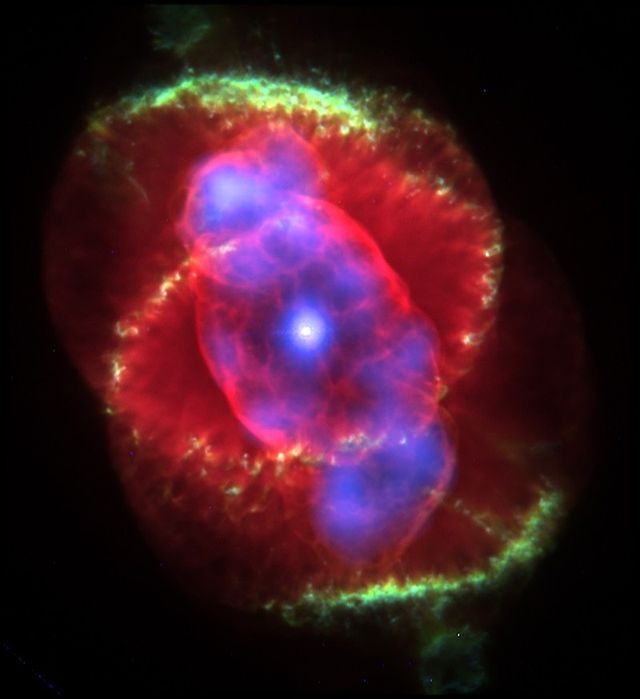
(Wikimedia Commons public domain image)
Some passages from Hans Küng, The Beginning of All Things: Science and Religion (Grand Rapids and Cambridge: Eerdmans Publishing, 2007), translated by John Bowden from Hans Küng, Der Anfang aller Dinge: Naturwissenschaft und Religion (Munich: Piper Verlag, 2005):
There are galaxies that lie beyond our horizon: “Such galaxies are not only in principle unobservable now — they will remain beyond our horizon for ever,” remarks Sir Martin Rees, British Astronomer Royal.
(page 43, quoting M. Rees, “Andere Universen — Eine wissenschaftliche Perspektive,” in Im Anfang was [k]ein Gott, ed. T. D. Sabbel [Düsseldorf, 2004], p. 47)
So the cosmos has a definite age, presumably 13.7 billion years, according to the most recent, 2001 measurements by the probe WMAP (Wilkinson Microwave Anisotropy Probe), which was launched from the Space Center at Cape Canaveral.
(page 54)
Quite understandably, physicists do not like the unique, the singular, in nature. Rather, singularity prompts them to investigate whether this singularity does not dissolve into regularity, cannot be ordered within the structure of proven laws of physics. Their characteristic is not the individual instance but repetition. And such a dissolution of the singularity has been successful in many instances.
But the singularity of the beginning is something fundamentally different: it evades all the concepts and laws of physics. Only 100th of a second after the Big Bang, well-known laws of physics apply. But physicists are in some perplexity over the time 0 (zero) and the cause of the mysterious primal explosion: How are they to explain the fact that the whole potential for hundreds of billions of galaxies was contained in a tiny unit of infinite density, temperature, and initial thrust? Only if the conditions of the beginning can be explained can they explain the special character of our universe.
(page 44)
Did the billions of galaxies come into being from a tiny unit after the Big Bang? Isn’t that a kind of “scientific belief in miracle”? At all events, that is what the American scientific journalist Greg Easterbrook thinks: for “sheer incredibility, nothing in theology or metaphysics could touch the Big Bang. If this description of the genesis of the cosmos came from the Bible or the Qur’an instead of the Massachusetts Institute of Technology it would certainly be treated as an exaggerated myth.”
(page 45, quoting from G. Easterbrook, “Wissenschaftliche Wunderglaube. Die Theologie des Urknalls and die Frage nach dem Anfang des Kosmos,” Neue Zürcher Zeitung, 23/24 October 1999)











